Welcome, Strange AND All: Another Hole In The Head 2024
A dispatch from one of the weirder film fests around.
Dear Moviegoers,
As a new year begins, uncertain if it will be our last as we know it, I’m kicking myself into a stir of gratitude. There are new movies to watch weekly, new festivals to enjoy, and new film people to chat with all the time. This blog letter is a place for counting blessings and progressing as a writer and moviegoer—even if the movies vary in quality. But good or bad, the cinema always makes for a good time.
As old footage of David Bowie said on Twin Peaks: The Return: “We live in a dream!”
And who would’ve thought that the dreamers from the Another Hole In The Head Film Festival, home to “weirdo” and eclectic movie programming, would conjure up pairing the music of Stevie Nicks to the sadness of Laura Palmer?
Fleetwood Peaks is no The Wizard of Oz / Pink Floyd mashup, but it’s a fairly interesting in concept simulation. Turning scenes and individual frames from the Twin Peaks collection into musically-driven visuals for some of the Fleetwood Mac song catalog is as much a trial to watch as a piece to ponder. Sleep never felt so good as when watching Fleetwood Peaks, and brain synapses were never as fiery.
The hour-long music video is more Fleetwood than Peaks, providing insight and possibility into the music at the expense of filmmaker David Lynch’s grand tale. More or less, Twin Peaks is a tool here, and it’s used weakly. Tunes will play in the full, usually sped up or slowed down to match the show's music - awkwardly I add - and from the band's live performances throughout the decades. Time plays a strong hand in each sequence, making one consider ideas of cosmic infinity and cruel fate. No matter how profound the video gets, it rarely knows what to do with such profundity.
Fleetwood Peaks is pretty but also pretty exhausting. I really wanted it to hit a “peak” of mashed-up threaded connectivity between the poetry of both mediums presented, but it never achieves the summit. Agent Cooper’s visage, in a long but paused take, will nod and move from side to side, as the song and live performance by Stevie Nicks and crew will dissolve and fade with much action. Laura Palmer’s spirit shivers at the thought of such waste but appreciates the effort.
And, of course, effort separates good movies from the bad. I Voted has plenty of effort, with little good as the result. This is a movie about the current political divisions in America, spurred on by the MAGA (Make America Great Again) “movement” and responded to by bleeding hearts and loud faux do-gooders. Subtlety is not on the docket here, and that’s ok. In fact, it’s both expected and necessary, as a project with a small budget must rely on script and themes.
However, reliance on certain tools of the trade becomes moot when the tools are faulty. All apologies, but I Voted is not meant for the watchlist ballot booth—so to speak. Set during a speculative 2024 Presidential election evening, with candidates not being named, a cast of characters ripped from imaginations fueled by ugly mass media are forced to deal with one another while their polling station is under lockdown (thanks to a cameo by Eric Roberts). Arguments reach fever pitches sooner than later, as “good old” Christians duke it out with trans college students, pure-bred racists, and military veterans. That’s the movie.
Grating and frustrating, I Voted only ever gets interesting when the personal clashes with the idealistic. The conversation about abortion is the film’s high point, where the women in the room, for a moment, bond with genuine empathy for one another, before the hate resumes. When the violent finale comes around, played to a truly laughable use of an anthem about America, goodwill is thrown away like snotty Kleenex. Could this be the point? Could it have been done better? Maybe and maybe.
May Voidcaller, a sci-fi thriller of the cosmic horror variety, be the first fest selection to impress. Shot in black and white on film and about conspiracy upon conspiracy, it’s a semi-blast of mystery and murder—semi, mind you.
A woman with a lost memory struggles to find her sister in a foreign country. There are others with trouble remembering short-term experiences, who are eventually killed and removed of parasitic worms. A man is building some sort of machine, and a pair of murderers are on a vague quest. Eventually, these scenarios converge and reveal a modestly satisfying resolution, one that rests on the shoulders of technical prowess and ambiguity.
The movie isn’t ho-hum, but pedestrian might be an accurate descriptor. Voidcaller isn’t poor by any means, showcasing exactly how to spruce up a small production by accentuating its positives and specialties. Still, it’s all too soft and quiet, which may be troubling in tone but comes off as being a bit underwhelming.
The overwhelming highlight of this screening series is, absolutely, with Dooba Dooba. Its title is off-putting, and 100% guaranteed the movie is more. Presented as a twist on the found-footage aesthetic - like a student-made PowerPoint project - Dooba Dooba is babysitting surveillance with voyeuristic and cult-like sinister attitudes. Wonderfully disturbing stuff.
A college-aged young lady is hired by overly-concerned and well-off parents to watch over their teen daughter who is afflicted with high anxiety and PTSD (post-traumatic stress disorder). “Dooba Dooba” is a phrase the family uses to put their daughter at ease when they pass by her room, and the cameras, placed everywhere in the house, are for “protective” purposes. Darkness will be revealed, and scenes will get gross with certain kinds of wild implications.
It’s difficult to shortly summarize this Dooba Dooba, and even harder to review it without light spoilers. Let me say that this movie is highly recommended, and should be hunted down once it becomes more readily available. Set a Google alert if you must, or wait for a longer review to publish here—I’ll want to discuss it some more.
Throwback alert: More than anything, They Call Her Death is a celebration of grindhouse revenge-westerns that, beyond purely stylistic, is fun. Just fun. Here, a wife’s life is torn asunder when a bounty hunter guns down her husband. She sets herself on a path of vengeance against those behind her tragedy. Cold bloodiness, snap zooms, bullets galore, and tense conversations abound.
Successfully celebratory of genre, They Call Her Death is nothing more than that. And…that’s more than enough. Surely I am serious, even if nostalgic stories of movies have long gone pop-interest. But considering the conventions used and the tightness of production, They Call Her Death deserves much credit when it had a lot potentially going against it. An independent triumph for makers who are fans at heart and craftspeople in mind.
Clever, gory, thrilling, and glori-ous, it’s great to see small-time filmmakers fully embrace past cinematic conventions in a modern way. THIS is how you do it.
For time loop movies to work, look to Groundhog Day for how to do it right, or at least to gather the basic blueprints. And Through The Portal We Go offers up some comedic qualities of that classic, while presenting it in a new way. Where Bill Murray’s weatherman was joyless and sarcastic, we have three leads who are faking bliss and covering up passive aggression for being stuck in the mud.
Partly taking the piss out of the Heaven’s Gate cult suicides from the 90s, And Through The Portal We Go is about the final three members of an obscure cult who, on their final day on Earth, walk through a portal in the woods that promises a new state of being. Rituals and routines are followed, but the portal just sends them back to the start of the day. Hilariously, layers of personality are peeled away, from hive mind to individualistic, forming back into pettiness and wonderful resentment.
I like to think that the cast and crew just bought a short-term rental in the woods and filmed a movie over the scheduled period. Maybe it wasn’t exactly like that, but considering that this comedy is another example of fine single-setting filmmaking, the ingenuity is all the more fantastic. While things get overly sentimental and a bit dull by the end, And Through The Portal We Go rests comfortably alongside my favorites of the fest. Watching such seething annoyances filtered through the lens of death was a pure delight. Almost gold.
Almost gold, but not quite. The Lonely Ones is another high-ish concept single-setting indie charmer about a spiteful couple who finds their apartment surrounded by pure bottomless darkness. Both “lovebirds” snip and snipe as they try to figure a way back to normal or just deal with the mysterious circumstances. Making puzzles, cleaning dishes, watching digital TV static, and sleeping all amount to what they were doing with their time before. Only now, it’s heightened.
Another movie with annoyed characters, The Lonely Ones misses the mark left by And Through The Portal We Go. Where that film used repetition and mean glances to make the quiet stuff loud, this film overdoes it on the dismissals and casual hatred, thinking those elements alone would be personality enough. Now, things do progress as the characters vent and let out their steam, but it’s too little too late. Roll with the anger, I say. Let them be at each other’s throats the whole story, with no breaks. That’s a personal preference, but one that would’ve made things better for me.
As it is, The Lonely Ones is hampered by a tiny production and its “heavier than the rest” screenplay. There’s no arrogance, but rather desperation to please.
Don’t worry so much, right?
Right. Head Like A Hole knows this. It’s less a movie of worry and more one of sweaty anxiety and discomforting actions, what little there are. A man living out of his car applies to be a “researcher” at a residential home, told to examine a tiny hole in an average basement, every day. He’s paid very well and does as prompted by a boss with a voice meant for radio, but he has concerns that only grow with time.
Cellar dwelling isn’t easy, even if you’re being paid for it. By a cult? A private corporation? Both, it seems. Wearing “professional” attire and drinking lots of coffee, the few that participate in this hole-based project look more and more like…Mormons? Evangelicals? It’s a creepy movie, but also fun in a “huh?” way. Unrequited romance, don’t ask don’t tell tasks, bible-carrying attire, unnatural pleasantries, and other such peculiar things add up to a finale that, while explosive, is very unsatisfying.
Look, I love Church criticisms as much as the next bro, and I dig mind-melting movies about menial jobs, but Head Like A Hole gets cheap by crapping out into an anti-message ending that’s tinged with brutal snark in place of a resolution. Better than flicks that I would’ve made in middle school, but barely. Still, I kind of recommend this. Head Like A Hole is so odd.
What’s not odd are movies made with gaming and YouTube streaming in mind. Is it still found footage if we’re watching a faux live gameplay? Augmented is no first-person POV short film, but it uses that idea here and there. Wearing an AR (augmented reality) visor, a young man enters an abandoned building to play the equivalent of a Pokemon Go game, only to become part of some sort of sacrifice.
Bummer.
Augmented does do the visor perspective, but not all the time. It dares not to do what the great feature Deadstream did, which was to put GoPro cameras everywhere and use every lens possible to perform for a virtual audience of many. Augmented is more concept than execution, and that can be alright for a simple short. Unfortunately, this one is just not all that interesting. The story could’ve remained simple but also entertaining if it had played more into gaming culture and app technology. There is a virtual partner in the form of a dog that guides the player. There is a chatbot AI that is treated like a person. And users are commenting on the experience. Play into those elements more, and less on the spookiness that the player is exposed to. No reality vs virtual argument, just tool around with the medium some more. Or a lot more.
Finally, more would’ve been nice with Hi I Just Moved Here. Well, by “more” I mean more space to move around in. Too tight of a lacking story, Hi I Just Moved Here is too easy to digest, and too poor of a heavy-handed “horror” to put a dent in this man’s stone heart. A recently divorced woman moves into a lovely new home and is greeted by a mysterious VHS tape and a go-go neighbor.
She has a large collection of 90s movies at her disposal, but this doesn’t really play into the story at all, except to pique her interest in the found but untitled video cassette. She has nightmares about her ex-husband, but this also doesn’t really play into the story at all, except to maybe suggest danger in her future. And, indeed, there is danger. But like with Hole In The Head, this short leaps to its ending like a lemming following others off a cliff. Unlike Hole In The Head though, Hi I Just Moved Here is bland. Just bland. There’s a knife. There’s grime and blood. There’s a nice house.
That’s it.
I hate to end this dispatch on such a downer review, but consider the hype I have for Dooba Dooba. No matter the overall picture, it’s the little details that sometimes are more memorable. That sometimes is more meaningful. I’ll never forget Dooba Dooba. And that is full of meaning.
The 2024 Another Hole In The Head Film Festival ran throughout December.
Sincerely Yours in Moviegoing,
⚜️🍿
If you enjoyed this article, here are a few more:


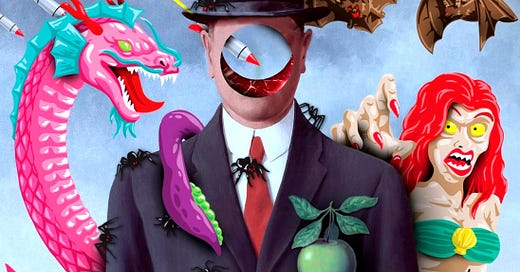



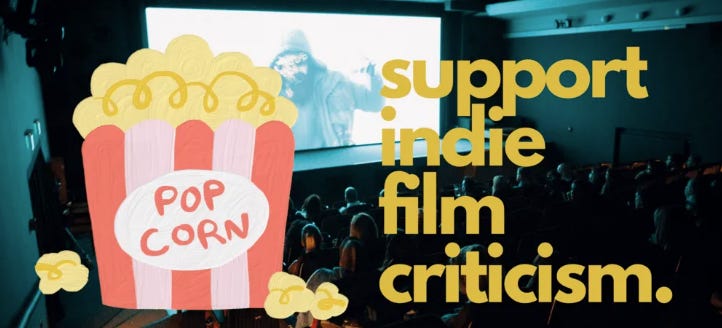
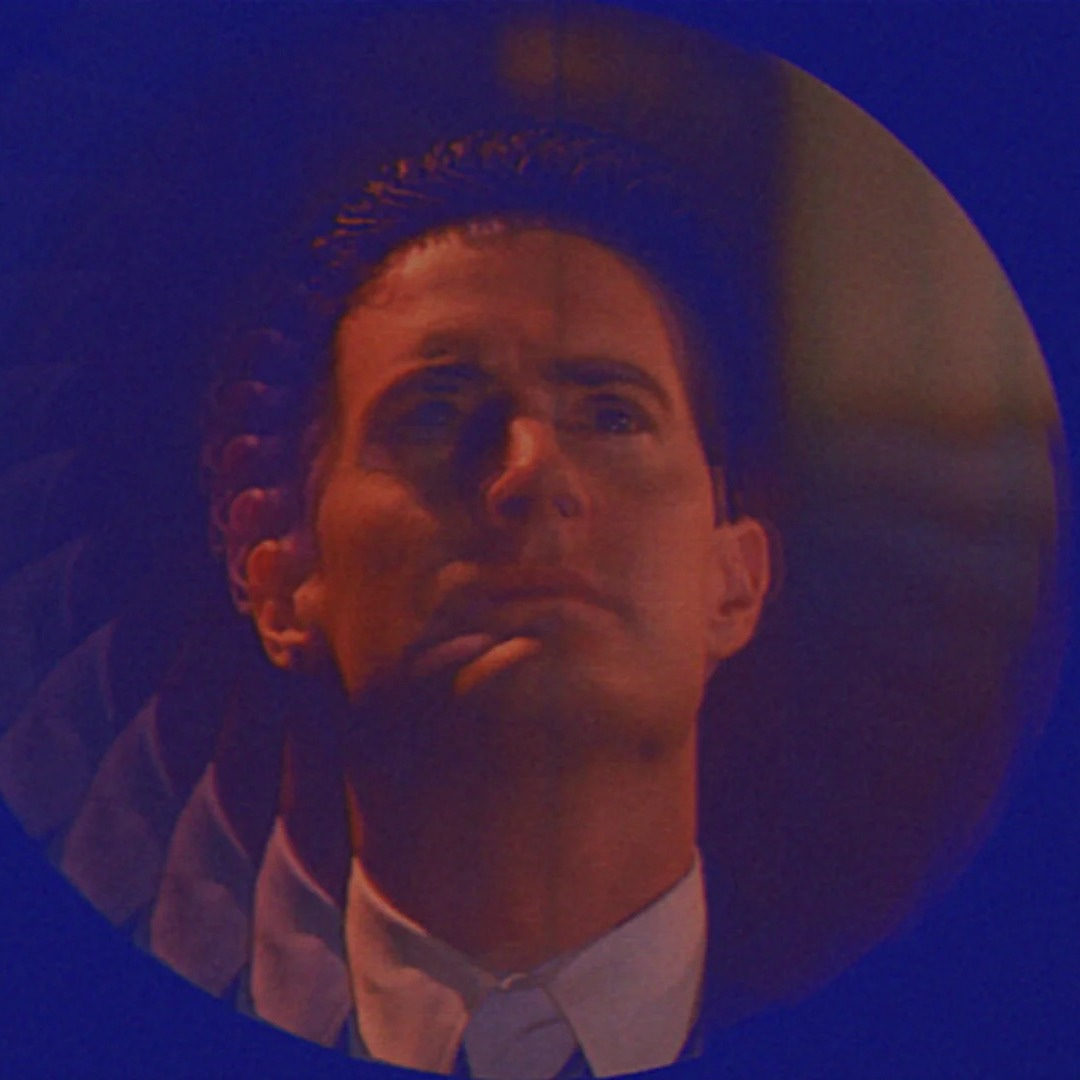
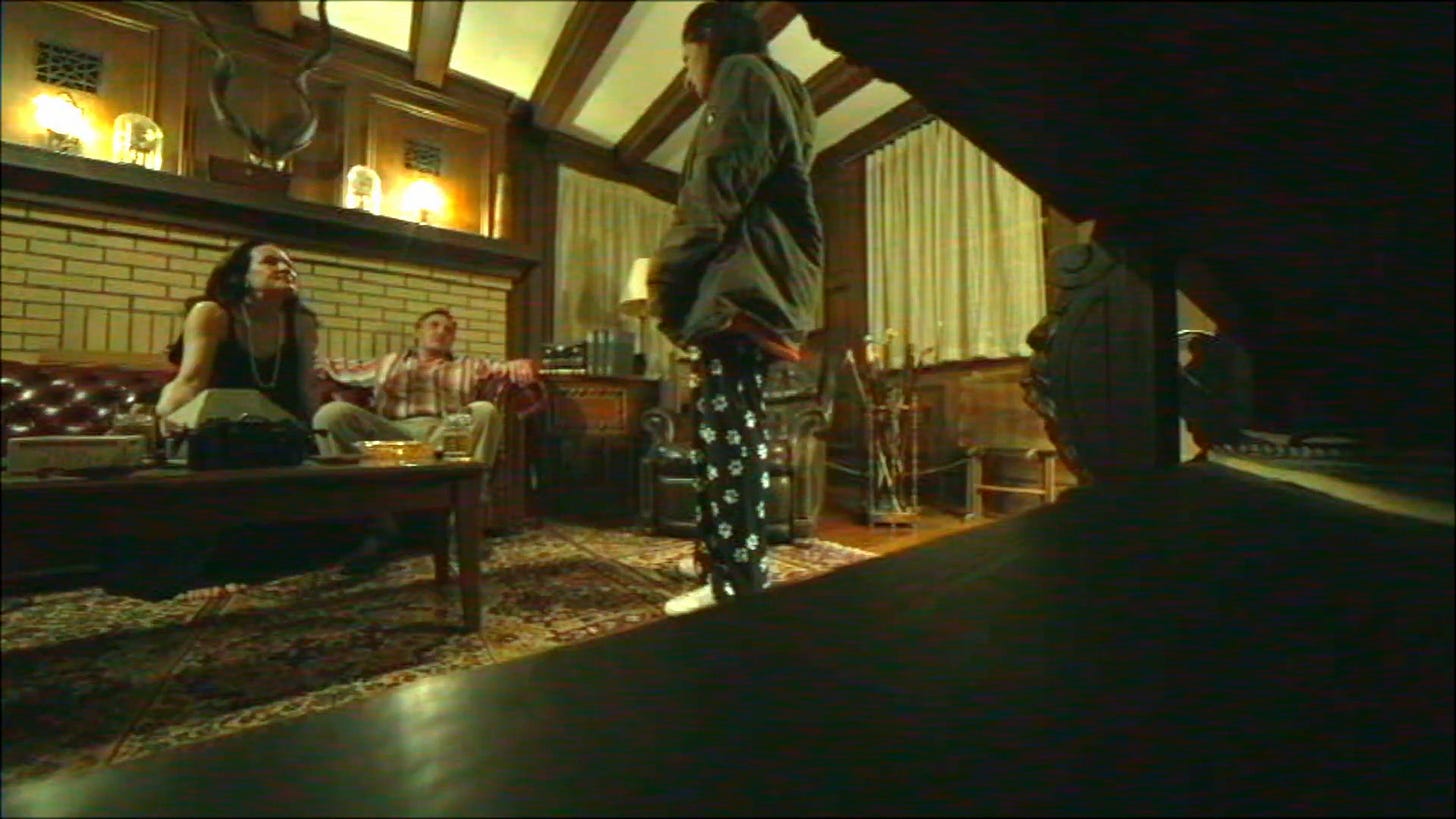
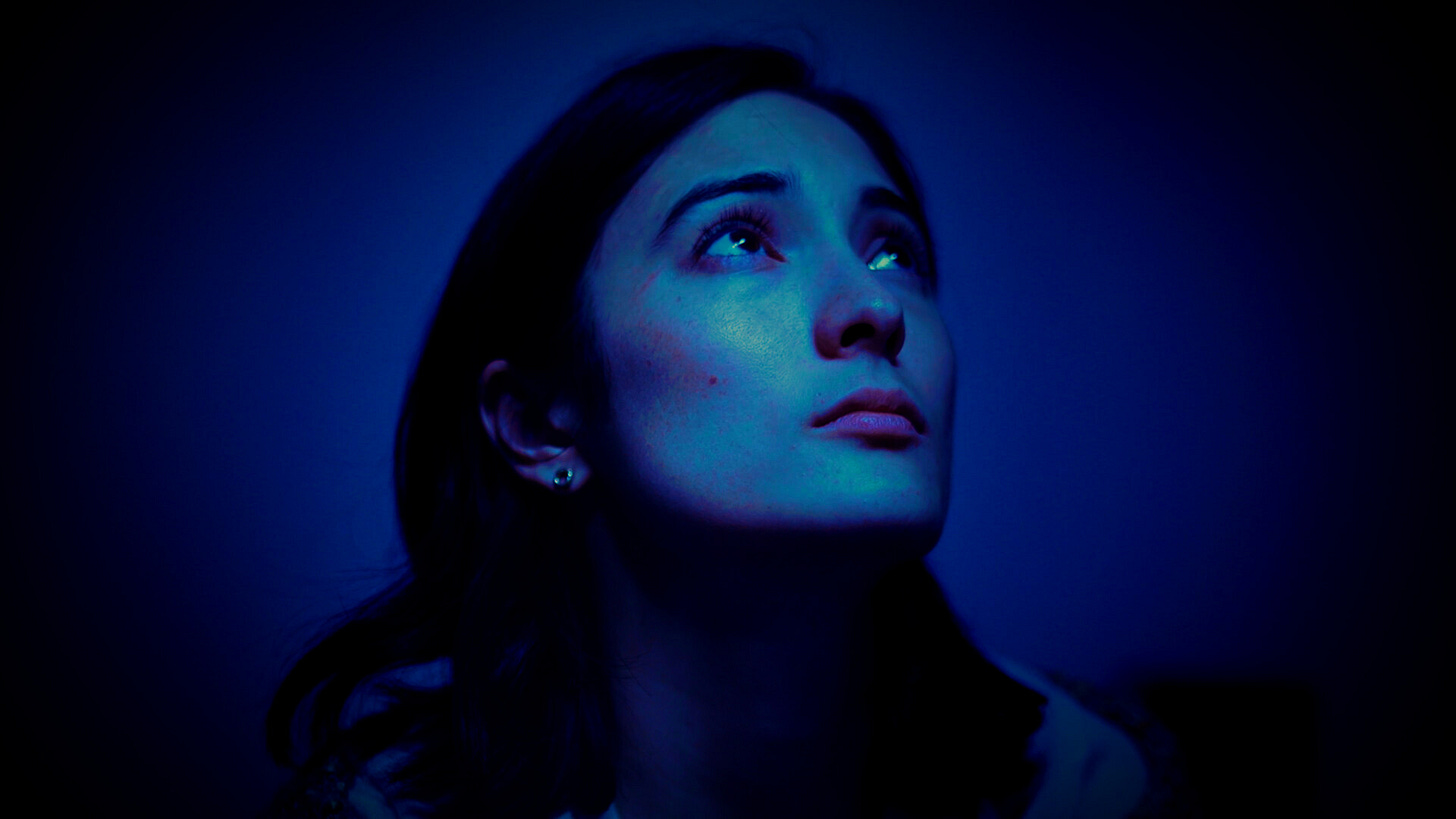
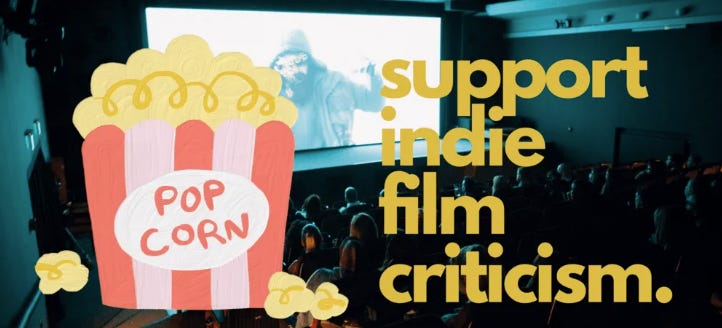
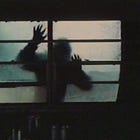

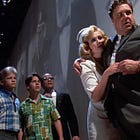
Thanks for your review of And Through The Portal We Go! We DID spend two weeks in the woods filming it in our location house with a rented crew house. Glad that the film camp vibes could be felt! Haha!